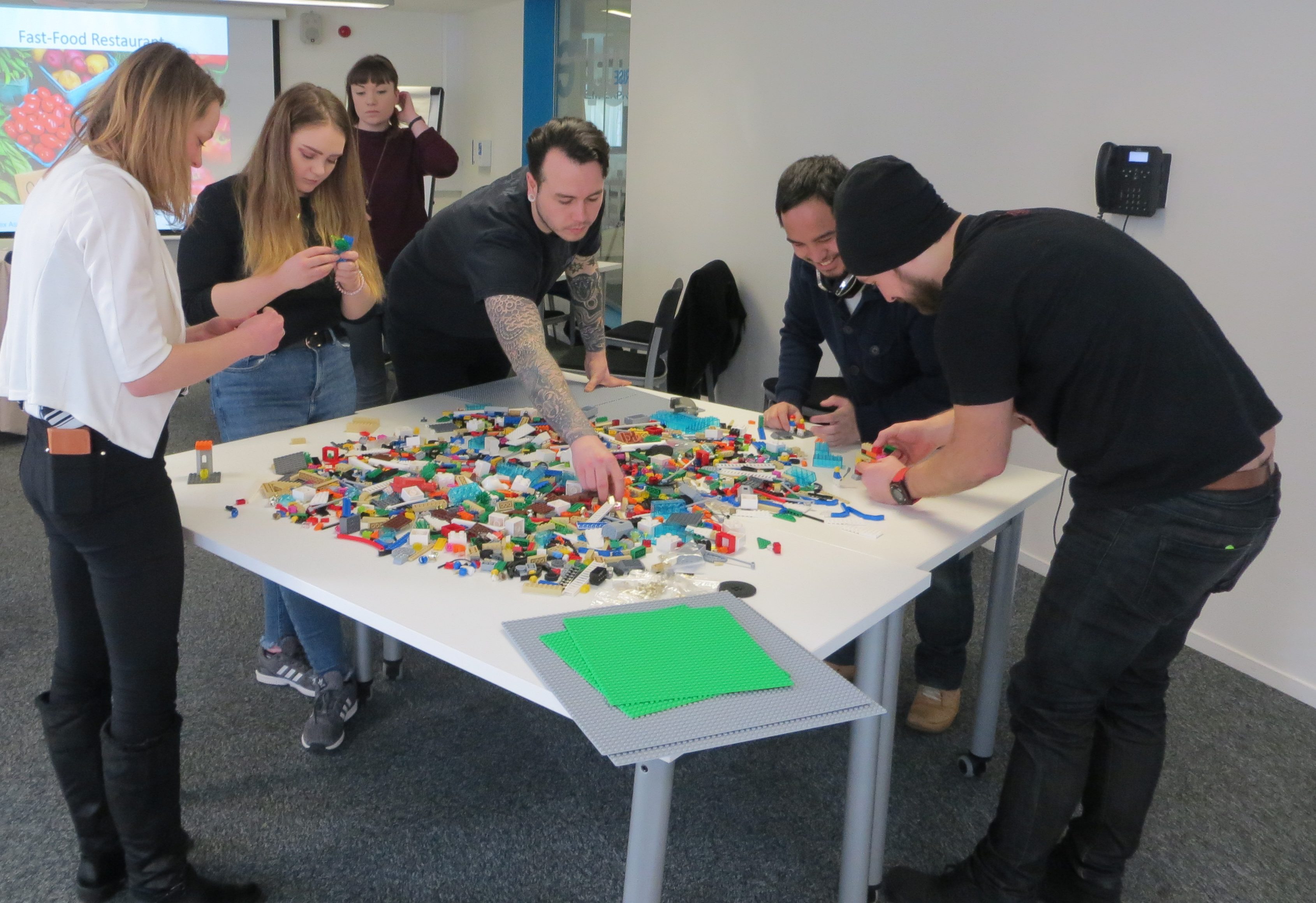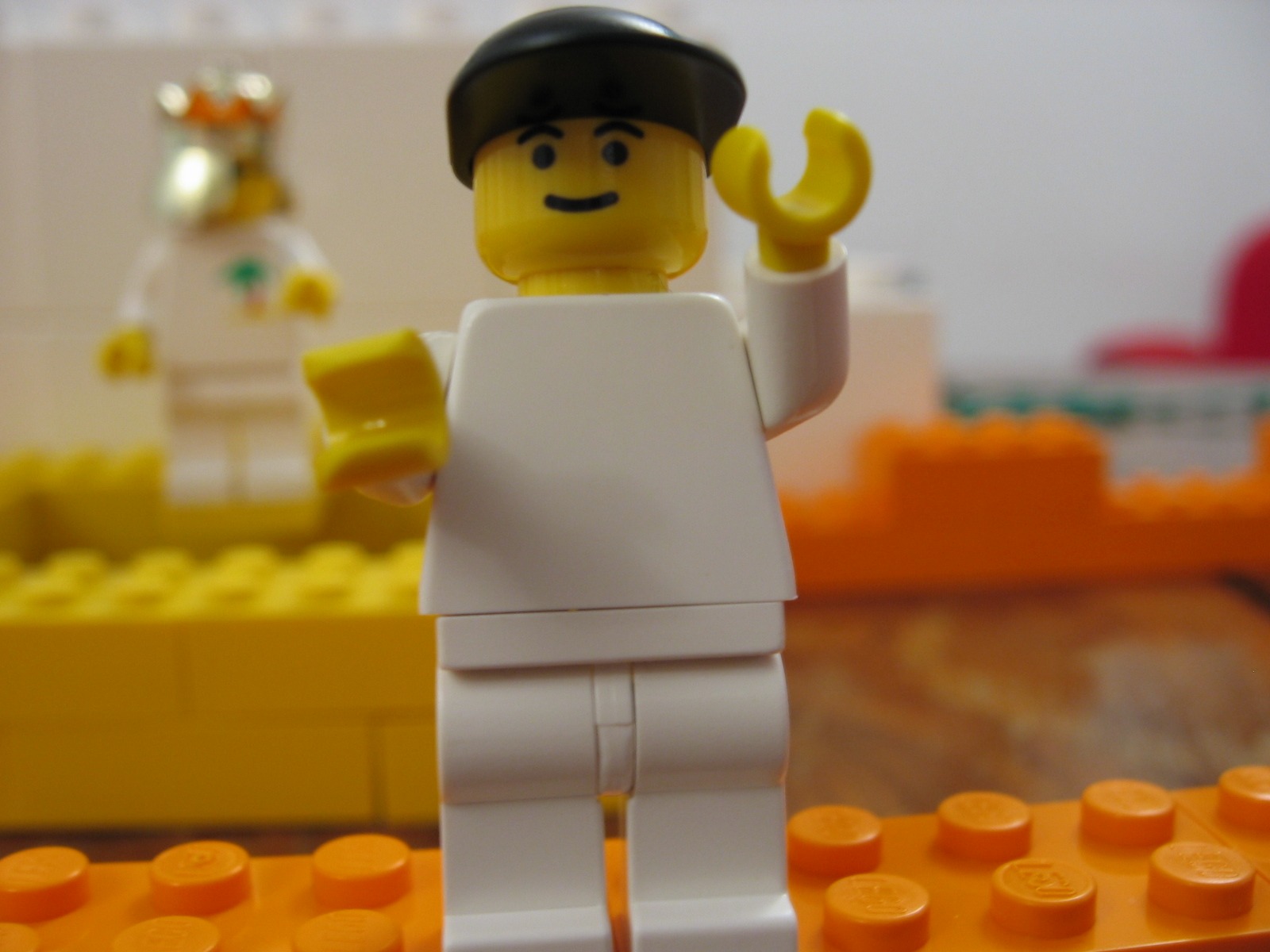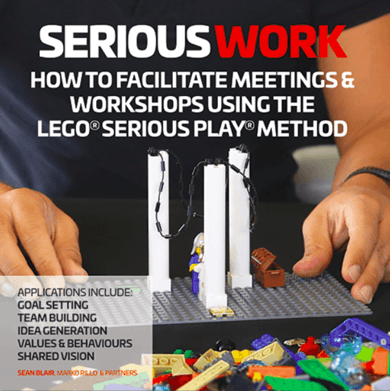The email read: “We currently manage a very evolved graduate programme. This includes some of the brightest and talented graduates from exclusive universities. Our final selection is regarded as the crème de la crème. We offer our graduates three jobs over a period of five years on two continents. We have ten new grads. joining us in February. Along with our current grads. we would like to have a fun-filled, exciting team building day for them to get to know each other and work together.”
I think: “I’ve got just the answer for you.”, because:
- LEGO SERIOUS PLAY in itself is team building.
- LEGO SERIOUS PLAY in itself is fun.
- The client wants to mix the current grads. with the newbies. I’ll allocate some of each of them in each team.
- They are supposed to be clever, so the issue for them to consider must be a challenging one.
- Besides team building of the established and new grads. we are dealing with induction of the new grads. and marketing the company to them.
- I’ll propose to the prospective client a one day LEGO SERIOUS PLAY workshop centered on the issue: “Build a LEGO model of a successful candidate on Company X’s Graduate Development Programme.”
I think again: “What is the second right answer?”
- These guys are serious: a programme consisting of three jobs over five years on two continents.
- Not only are they serious, they are prepared to make a long term investment.
- The one day team building workshop cannot be a standalone incident unrelated to the overall investment.
- It must be integrated with the other programmes the grads. will undertake.
- The power of LEGO SERIOUS PLAY lies in its ability to emotionally involve the delegates in the issue they jointly consider.
- Beyond factual answers, we are building a sense of belonging and commitment amongst the grads.
- The issue they tackle must be useful and meaningful to each and every one of them as they embark upon their managerial career.
- How about them answering the question “What must be done to succeed on the Grad. Development Programme?” They can first build individual models of their own thoughts and then collate them into an agreed answer.
- Then, as those annoying infomercials say, “Wait, there’s more.” Then they each have to build an individual LEGO model in answer to “What must I do to succeed on the programme.” Each delegate is then required to evolve the 3-D LEGO model into a written action plan that then becomes an integral part of that grads.’ performance appraisal over the next few years.
Hey, this is fun, so I think again:
- I buy into LEGO SERIOUS PLAY because if addresses joint issues at an emotional level as well as a rational one. I don’t quite understand what’s happening but I firmly believe self-motivation is triggered. After all, decisions aren’t only rational.
- Maybe there’s more I can do to strengthen the positive emotions and attitudes evoked by LEGO SERIOUS PLAY.
- How about the framework of Experiential Learning: Doing, Reflecting, Applying. Let the delegates “play” with LEGO. That’s the “Doing”. Then they can reflect upon their behaviour. After all, playing with LEGO is fun and it creates an atmosphere supportive of introspection. So if the LEGO exercises are structured in a way to elicit certain managerial behaviours, afterwards they can be reflected upon. Then a LEGO SERIOUS PLAY session can be structured to work out an answer as to how the delegates can successfully implement those behaviours.
Oops, time to think again.
- Wait a minute! Who is the client? Let’s get back to what the client wants. What is right for the client?
- Sure, ask the client, but I have to put a proposal on the table to even stand a chance of getting the business.
What would you do? Please add your comments below …









 Become a LEGO Serious Play facilitator - check one of the upcoming training events!
Become a LEGO Serious Play facilitator - check one of the upcoming training events!
Make them build individual models on who they are, what’s their excellence, biggest challenge, key-learning point or purpose for joining this program. Or all of it. Afterwards you can let them make connections – so they combine forces, learn from each other, form bonds/buddies, and so on. Besides you could make them build on the program itself and its purpose and what can be their contribution to it (and what’s needed to do that). The choice of focussing on personal issues or more content-related is to be made by the client.
Let them build an individual model that expresses their understanding of the organization they are to join. Subsequently they can build a shared model about the way they would realize the purpose of the organization as a team. You can then let them build a landscape with the agents that influence the organization.